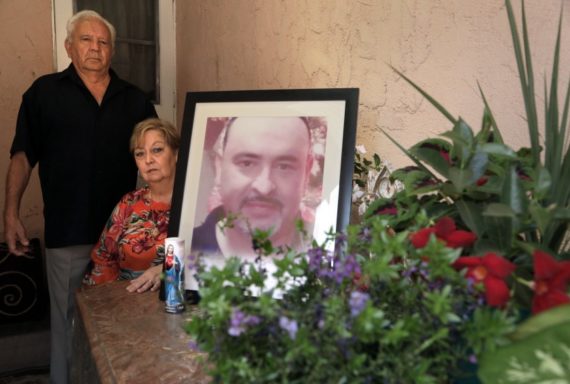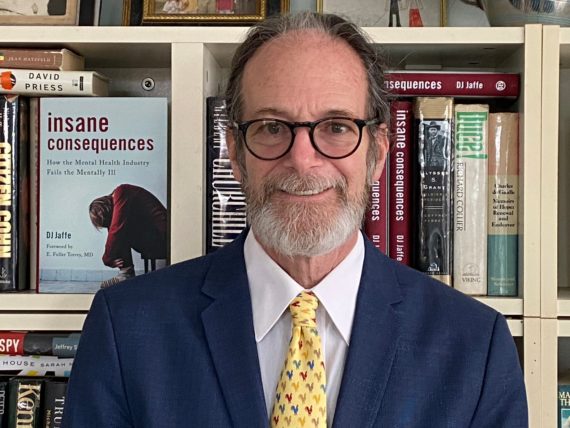
Juan and Blanca Briceno created a shrine for their son Eric Briceno, who was killed by deputies in March during what they said was a mental health call.
(Myung J. Chun / Los Angeles Times)
As Communities Shift Responsibility For Responding To Emergencies Away From Police, Is CIT Training For Law Enforcement At Risk?
(10-6-20) The Greater Los Angeles chapter of the National Alliance on Mental Illness has written a letter demanding answers about the death of a seriously mentally ill man at the hands of sheriff’s deputies. The letter also warns of what I fear is an alarming problem across our nation – the scaling back of robust Crisis Intervention Team training for law enforcement as localities shift responsibility away from police/deputies to other first responders.
Eric Briceno died in March after his mother Blanco Briceno, called sheriff’s deputies about her 39 year old son who was asleep in his bedroom when they arrived.
“We called them to come and help us, to get some help,” Briceno told the Los Angeles Times during an interview. “And instead, they came and killed him, brutally killed him.”
“Deputies ignored the parents’ plea to allow them to bring their son out of his room safely,” the NAMI letter notes. “Instead, (they) entered his bedroom…Mr. Briceno was pepper sprayed and shot with a Taser seven or eight times, according to the autopsy report.”
That autopsy wasn’t made public until late September, prompting NAMI’s Oct. 3rd letter. The coroner’s office concluded that Briceno died of cardiopulmonary arrest, resulting from neck compression and restraint with a Taser. The death was ruled a homicide…”
“The only information available publicly at this time is the story in the Times,” the NAMI letter notes. “But if the truth is close to the depiction of the facts as portrayed in the article, deputies abandoned good practices and de-escalation protocols in favor of physical intervention and the use of force. NAMI Greater Los Angeles County will not ignore fatal use of force upon individuals living with serious mental illness by any law enforcement agency especially the level of force appears great.”




